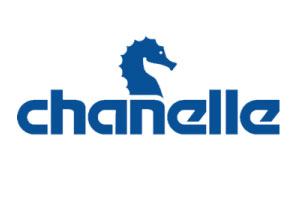Category: Worming

Royal Mail Tracked 24 (Signed For)

Royal Mail Special Delivery Guaranteed by 1pm

| Category | POM-VPS |
| Temperature | Ambient |
| MA/VM/EU No: | 08749/4085 |
| Species |
|
| VMD Link | https://www.vmd.defra.gov.uk/ProductInformationDatabase/product/A009689 |
| NOAH Link | https://www.noahcompendium.co.uk/?id=-475489 |
| Dosage | For oral use only. To ensure the correct dosage, bodyweight should be determined as accurately as possible. If animals are to be treated collectively rather than individually, they should be grouped according to their bodyweight and dosed accordingly, in order to avoid under- or overdosing. Shake well before use. The product oral suspension should be administered with a drenching gun. Appropriate drenching equipment should be used to allow accurate dosing. This is particularly important when administering small volumes. 1 mg diclazuril per kg bodyweight (equivalent to 1 ml of the oral suspension per 2.5 kg bodyweight) as a single oral administration. Lambs A single oral administration of 1 mg diclazuril per kg bodyweight or 1 ml the product oral suspension per 2.5 kg bodyweight at about 4-6 weeks of age at the time that coccidiosis can normally be expected on the farm. Under conditions of high infection pressure, a second treatment may be indicated about 3 weeks after the first dosing. Calves A single administration of 1 mg diclazuril per kg bodyweight or 1 ml the product oral suspension per 2.5 kg bodyweight, administered as a single dose, 14 days after moving into a potentially high risk environment. If a satisfactory response is not observed, then further advice should be sought from your veterinary surgeon and the cause of the condition should be reviewed. It is good practice to ensure the cleanliness of calf housing. |
| Withdrawals | Do not use in cases of hypersensitivity to the active substance or to any of the excipients. In the absence of compatibility studies, this veterinary medicinal product must not be mixed with other veterinary medicinal products. Diclazuril oral suspension was given to lambs as a single dose up to 60 times the therapeutic dose. No adverse clinical effects were reported. No adverse effects were noted either at 5 times the therapeutic dose administered four consecutive times with a 7-day interval. In calves, the product was tolerated when administered up to five times the recommended dose rate. In very rare cases, adverse events involving gastrointestinal disorders (such as diarrhoea, with possible presence of blood), lethargy and/or neurological troubles (agitation, recumbency, paresis...) have been reported. Some treated animals may show signs of clinical disease (diarrhoea) even though oocyst excretion is reduced to a very low level. The frequency of adverse reactions is defined using the following convention: - very common (more than 1 in 10 animals treated displaying adverse reaction(s)) - common (more than 1 but less than 10 animals in 100 animals treated) - uncommon (more than 1 but less than 10 animals in 1,000 animals treated) - rare (more than 1 but less than 10 animals in 10,000 animals treated) - very rare (less than 1 animal in 10,000 animals treated, including isolated reports) Lambs On rare occasions, in highly susceptible lambs e.g. where they have been housed for long periods of time before being turned out onto heavily contaminated pasture, a severe scour has been seen shortly after dosing. In such cases, fluid therapy is essential. Calves Clinical coccidiosis generally occurs late in the parasite’s life cycle after most of the damage to the calf’s intestine has already been done. This severely damaged intestine can easily be infected by secondary bacteria and/or other agents. In cases of acute clinical coccidiosis treated with the product, fluid therapy is essential. Symptoms of clinical disease may remain obvious in some calves treated with the product, even though oocyst excretion is reduced to a very low level, and overall prevalence of diarrhoea is decreased. The preferred timing of treatment is directed by the known epidemiology of Eimeria spp. and the presence of coccidia in the flock or herd should be confirmed by faecal sampling prior to treatment, if there is no recent and confirmed history of clinical coccidiosis. Coccidiosis is an indicator of insufficient hygiene in the flock/pen. It is recommended to improve hygiene and to treat all lambs in the flock and all calves in a pen. Special precautions to be taken by the person administering the veterinary medicinal product to animals Wash hands after use. Disposal Any unused veterinary medicinal product or waste material derived from such a veterinary medicinal product should be disposed of in accordance with local requirements. Environmental properties Diclazuril has been shown to be very persistent in soil. Withdrawal period(s) Meat and offal: Sheep (lambs): zero days Cattle (calves): zero days |